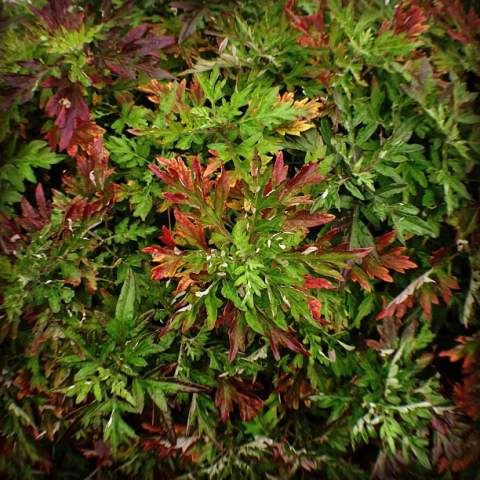
For some people seasonal or food allergy is an uncomfortable and annoying situation, but for others an allergy can be life-threatening condition. Only way to combat these irritants is to avoid them.
Mugwort allergy symptoms are almost identical to seasonal allergies. Elements in mugwort are said to trigger hay fever and other allergic symptoms. Before we dwell deep into this perennial plant, let me give a brief view about it.
It’s a common name given to several plants of Artemisia genus. This unattractive plant reaches up to a meter height and is prominent in Chinese medicine. Even modern medicines are incorporating this perennial plant due to its anti-herpetic activity. Mugwort contains derivatives of essential oil that can extensively used to restrain infectious germs.
However, in North America, Asia and North Europe, mugwort pollen is the mere cause of hay fever and asthma. People who experience pollen allergy before can get irritated with mugwort.
In Korea, Japan and China, mugwort leaves are included in salads, cuisines and cakes. Though cooking will destroy allergic proteins, you’ll experience reaction if you’re sensitive to proteins in this plant.
So, to avoid mugwort allergy, you must avoid dishes or food that include this plant.
Symptoms of Mugwort Allergy
An allergic reaction stimulates due to the adverse reaction between harmless food elements and immune system.
When you ingest specified food or get exposed to substances, immune system releases IgE antibodies to detect them. These antibodies notify immune system when you come in contact from the second time. To thwart the foreign particles, immune system releases histamines.
Thus the reaction between proteins and histamines results in various allergic symptoms.
Sneezing, coughing, redness of eyes, itching, skin rashes, hives, dermatitis, tingling around mouth, swelling of face and throat, eczema, asthma and in rare cases anaphylaxis.
Mild allergic symptoms can be reduced by anti-histamine. But, when you repeatedly exposure your body to the allergens, symptoms may lead to severe conditions.
If you experience uncommon signs after eating mugwort or coming in contact with the plant, then consult doctor for diagnosis, because it’s difficult to confirm the allergen by just seeing symptoms. Allergist will conduct skin prick test and other related test to determine the allergen, based on that medication will be prescribed.
Cross Reactivity
Often mugwort pollen interact with other foods like honey, sunflower seeds, camomile, hazelnut, beer, almond, pistachio, peanut, carrot and apple. Approximately, 25% patience with this allergy is reported hypersensitive to above mentioned foods.
Mugwort, ragweed and timothy grass share IgE epitopes, which confirms the cross-reactivity between mugwort and ragweed.
So people with mugwort pollen allergy may be hypersensitive to ragweed proteins. Apart from these two allergens, other foods like mentioned above can irritate your immune system.
Often raw form of these foods reported to trigger allergy. Experts say that cooking and microwaving the food will destroy these proteins.
Just staying home will not avoid seasonal allergy, you should know about the foods that include pollen allergens and avoid them. For treating mugwort allergy and other allergies, you must consult doctor.

